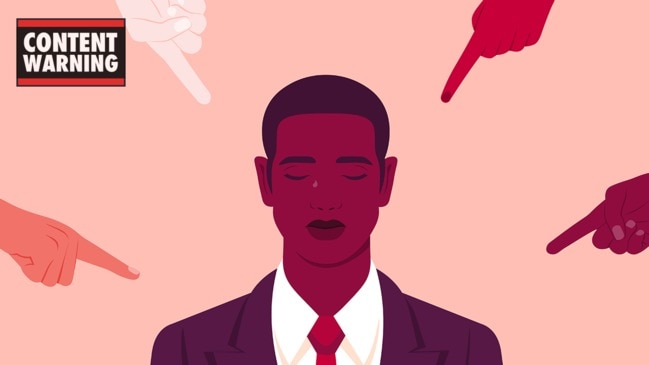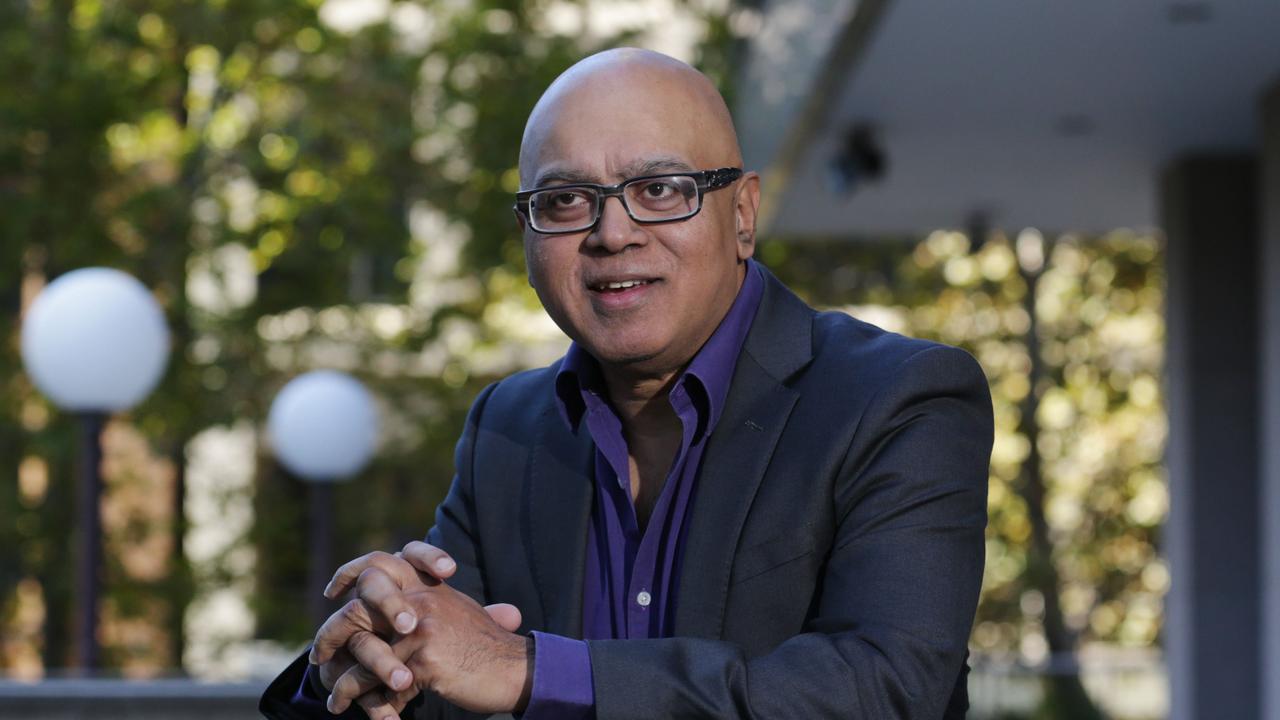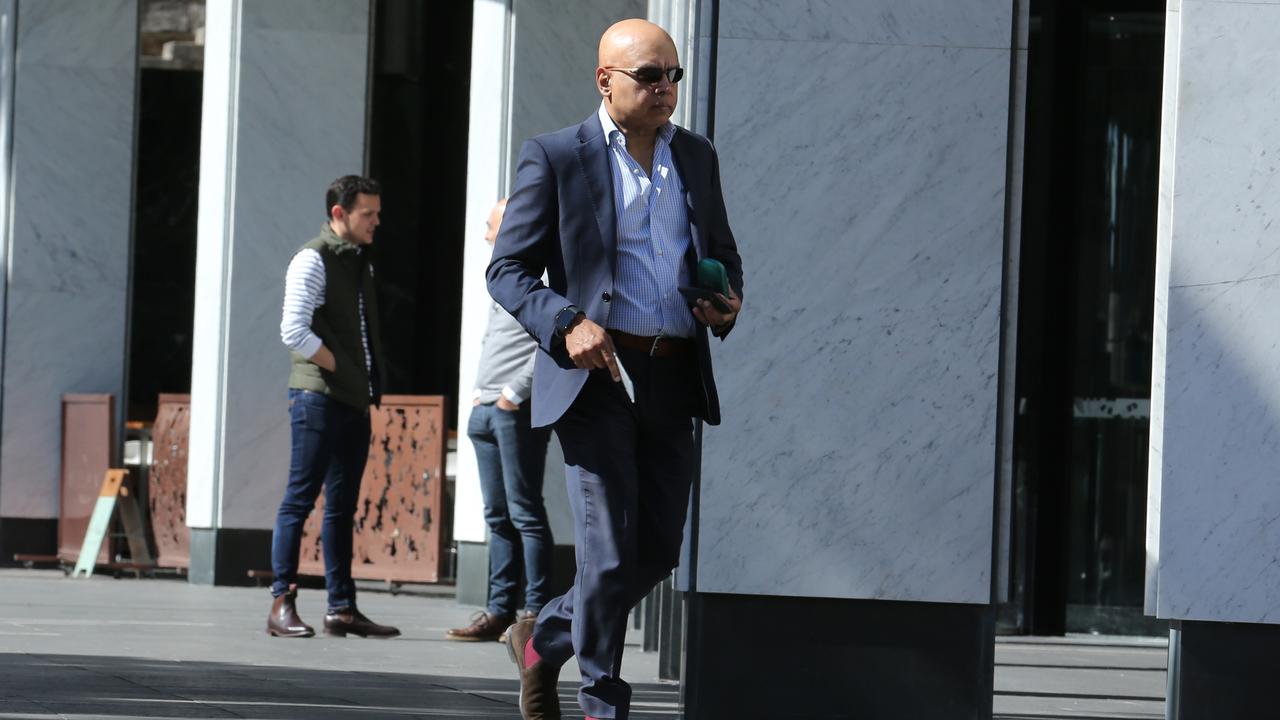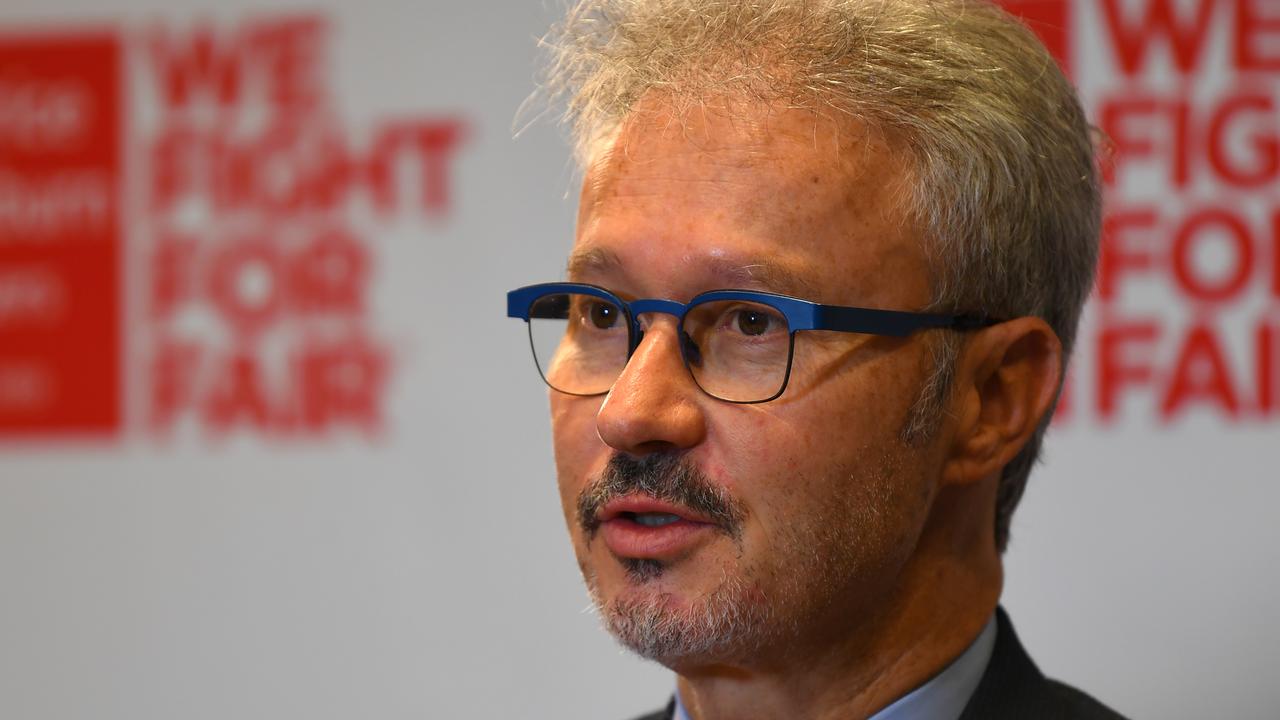AMP boss promoted after director reported him for sexual harassment
When Julia Szlakowski landed a prestigious role at Aussie company AMP, a high-up boss harassed her repeatedly. Then he got promoted.

When the sexual harassment was at its worst, Julia Szlakowski woke up at night screaming in bed beside her-then fiance.
And wasn’t just nightmares – the impacts bled into all corners: “My life was dismantled in every possible way. I was paralysed with anxiety. For a time I stopped going outside and interacting with people. I felt cold and I shook a lot.
“I had no appetite. I dropped about 20 pounds [9kg], very quickly, within a couple of weeks. The trauma had really gripped me.
“My whole body was just clenched like this,” the 41-year-old explains from her home in the United States, bunching up her fists to demonstrate.
I’m struck by her toughness, her warmth and her decision to trust me, despite everything.
RELATED: Chairman’s shock decision rocks AMP

Back in December 2016, Julia was thrilled to land a prestigious and hard-earned gig as an Institutional Director for the Australian multinational financial services giant, AMP. From the company’s viewpoint, this is a high-trust position in which she was charged with raising billion dollar funds from institutional investors.
But just six months into her new position, Julia lodged a seven-page complaint with AMP, detailing an escalating pattern of sexual harassment by the-then AMP Capital boss, Bodhisattwa ‘Boe’ Pahari.
In the complaint, Julia recounted that during the early stages of her employment, Mr Pahari, who was 20 years older than her, asked her the age of the oldest man she ever dated.
At the height of the harassment, Mr Pahari insisted Julia fly from her home in the US to London for a meeting. At a work-related dinner, Mr Pahari again raised the subject of the oldest man Julia had dated, this time in front of colleagues. She was mortified.
RELATED: Vile act after worker reported harassment

After dinner. he insisted that Julia accompany him alone to an exclusive private members’ club. She felt she couldn’t say no to someone who held the keys to her future.
In the cab, he said, “If only I met you three or five years earlier, Julia”. He told her to download WhatsApp so their communication couldn’t be tracked. In the wee hours of the morning and against her wishes, he extended her stay in the UK, saying he would take her to dinner anywhere she wanted.
When Julia refused to use his credit card to go shopping for “a nice dress and heels,” for her extended stay, Mr Pahari claimed her actions were “ … as humiliating as if I had a limp d*ck.” (During this interaction, he repeated the phrase “limp d*ck” three times.)
When Julia asked if she should come into the office to work the next day, Mr Pahari replied, “You know Julia, no one at AMP needs to know about this.”

Julia recalls that during that London incident, she finally escaped back to her hotel room and called her former fiance in the US at 3.29am. She was in deep distress. Julia wanted to fly home immediately, but knew her job was at stake if she did so. Her partner told her to leave.
Reflecting back on the events of that evening, Julia is visibly affected by the memory.
Following her complaint, Julia was extensively interviewed by AMP. AMP shared a portion of the investigator’s findings with her, and the investigation found that the factual allegations she had made were true. However, the report went on to conclude that the conduct only amounted to “lower level breaches of the company’s code of conduct”.
Shortly after being informed by a colleague that Mr Pahari was said to have been exonerated by the investigation, Ms Szlakowski resigned her role in March 2018.

The investigation report into Julia Szlakowski’s complaint was conducted by Andrew Burns QC. It stated that: “ … there was poor judgment exercised by [Boe Pahari] during this evening and one moderate and two minor incidents which overall added up to a relatively modest breach of the AMP Workplace Behaviour and Equal Opportunity Policy.
“However, this involved a senior manager who ought to have been observing a high standard of equality and diversity practice and who ought to have had a much better understanding of how his actions might be perceived by and may affect a junior colleague.”
Like so many sexual harassment cases, the matter was settled out of court, with Mr Pahari getting a 25 per cent reduction in his annual bonus. However, unlike most cases, Julia did not sign a nondisclosure agreement. And that’s why you’re able to hear her story today.
In July 2020, Mr Pahari was promoted to CEO of AMP’s money management arm, AMP Capital, although in August this decision was reversed, citing shareholder push back relating to the 2017 sexual harassment complaint. He did, however, return to his previous role as global head of AMP Capital’s infrastructure equity business.
At the time Boe Pahari said in a statement via AMP: “I deeply regret the events in 2017, and I apologise to Julia Szlakowski.
“I am committed to doing everything I can to see this business and our people reach full potential. The best way I can make amends is to do the job I have been given to the best of my ability.”
Last year AMP boss Francesco De Ferrari apologised to Julia while appearing before a federal parliamentary inquiry. Despite this, Julia’s Australian lawyer, Josh Bornstein, believes AMP embarked on a campaign to publicly downplay the seriousness of her allegations.
“I was brought in to assist Julia, because there was an outcry amongst the staff at AMP over the decision to promote Mr Pahari in 2020. As a result of that outcry, the company then engaged in a sustained public relations campaign.
“Julia was a victim of that campaign, because that public relations campaign trivialised what happened to her. That’s all part of the dark arts of brand management and it’s a very familiar scenario,” he says.

Josh is Principal at the law firm Maurice Blackburn and has been dealing with workplace sexual harassment cases for more than 20 years. He knows the so-called “playbook” well.
In his view the public relations spin then “blew up in the company’s face”.
“The chair of AMP resigned, and one other board member resigned, amongst other consequences for the company. The company still is yet to really recover from that terrible blunder,” he says.
But even so, none of this can disguise or repair the damage that’s been done to Julia’s life. At one stage, I ask: What was in her nightmares? Almost imperceptibly, Julia’s mouth quivers. Eventually, she says: “That’s really hard to talk about.”
She then thinks back to her childhood; her family were political refugees escaping Poland in the Cold War. The country was under martial law. Terrified, her family fled with nothing. She links the fear and trauma of that time to the mental and emotional anguish she felt during the sexual harassment:
“Those events triggered this incredible anxiety where I felt I was never safe,” Julia said.
For Julia, one of the worst parts of coming forward has been the isolation that’s ensued: “Professionally, you become an automatic enemy of the company you’ve staked your reputation on.
“You are ostracised by your closest colleagues, who need to prioritise their income above their friendship with you, potential clients stop returning your calls [and] your list of references shrinks,” she says.
According to 2018 statistics from the Australian Human Rights Commission “ … 39 per cent of women and 26 per cent of men have experienced sexual harassment at work” in the last five years.
But Josh says the true incidence is impossible to gauge: “There is an enormous number cases of sexual harassment which aren’t reported. A lot of people feel shame and guilt when they’re sexually harassed, even though they’re not to blame,” he said.

“Then there’s another dimension, which is the fear of the matter going public and … being labelled a troublemaker, and of losing employment. So there’s a whole host of reasons why people are deterred from speaking up.
“In other cases where sexual harassment cases are reported, they’re resolved on confidential terms with nondisclosure provisions. So again, that tends to impact your ability to understand how common a problem this is,” he continues.
In Julia’s case, she never intended to go public. But in the end, she felt there was no choice. Only once incorrect, incomplete information from AMP started leaking into the public domain last year, she made the impossible choice to “ … defend my reputation by setting the record straight”.
Like many survivors – myself included – Julia continues to pay the price for deeds she did not commit. When she joined AMP, Julia was engaged, had started planning a family and was “ … building my dream home in Southern California”.
She managed to keep her home. But there is no husband or baby.
“You can’t possibly be a good partner while you’re going through this level of trauma. You can’t. You hope your partner will step up and be there for you … but unfortunately, that wasn’t the case,” she says.

Julia has been monitoring the Australian news coverage around former political staffer Brittany Higgins’ rape allegations. She says: “My heart absolutely breaks for Brittany. Rape is an under-reported crime globally. And for her to come forward with this, it’s beyond courageous.”
She says it’s especially difficult when the company or political party is seen to be engaging in spin against the alleged victim.
“If they don’t have a strong case to refute the allegations, the easiest way to try to win an argument is by attacking the survivor directly, attacking your credibility and integrity. And that’s all you have left.
“It is never the right time to tell the truth. It will never be convenient. It is often blisteringly painful. It comes with great personal risk and unforeseen sacrifice. However, I believe that truth will inevitably prevail to help shed light for others who will take up the torch and continue to pave the way forward,” Julia says.

In a personal sense, Julia is now doing well: “Luckily for me, I found the right doctors to help me confront the trauma and heal from it. But many women can’t afford the treatment.
“It’s not a battle one can wage on their own and companies who are liable for triggering trauma should bear the costs for its cure.”
And she’s starting to wonder whether her life’s work will not be the family she dreamt of for so many years, but instead a fresh type of activism which will help to forge a fairer society for women.
Julia imagines a world where sexual harassment targets aren’t shunned, but supported: “When survivors are ready to re-enter the workforce, they should be evaluated in a fair and unbiased process by potential employers.
“By black-listing and further isolating survivors of sexual harassment or assault, companies are depriving themselves of a talented pool of some of the most courageous and principled people they will ever meet.
“Believe women who bravely come forward with a complaint. Hear them out. Take them seriously. Provide them with support and resources. Above all, implement a fair and independent investigation … there must be real consequences for [the guilty party],” she says.
Josh agrees with his client. Complainants must be believed. Sexual harassment must be fairly investigated. He too turns to the future: “The grounds are shifting, but it’s an ongoing fight … because until there’s more gender equality and a more even distribution of power – both at work and outside work – it’s going to be a continuing struggle,” he says.
Ginger Gorman is a social justice journalist and author of the award-winning book, Troll Hunting. Follow her on Twitter @gingergorman. She’s a sexual harassment and sexual assault survivor.




